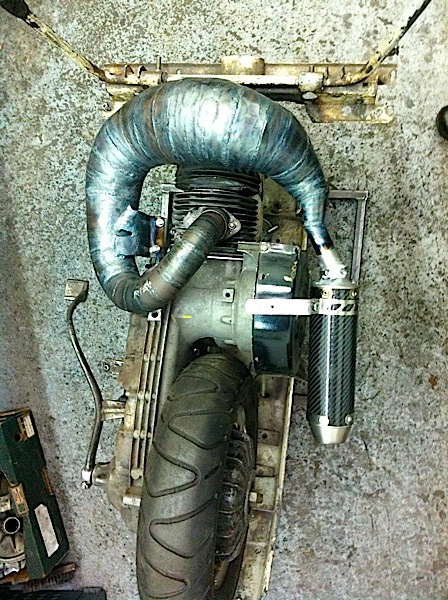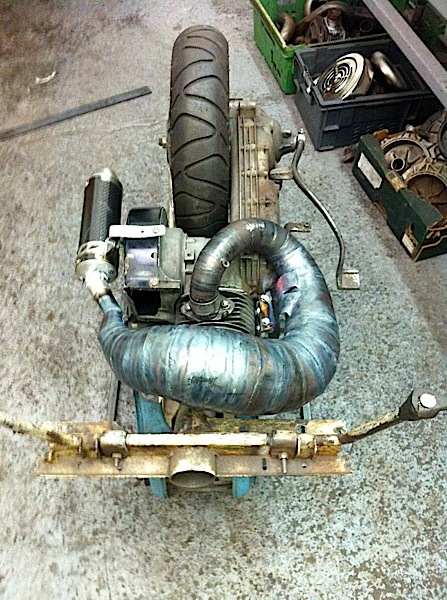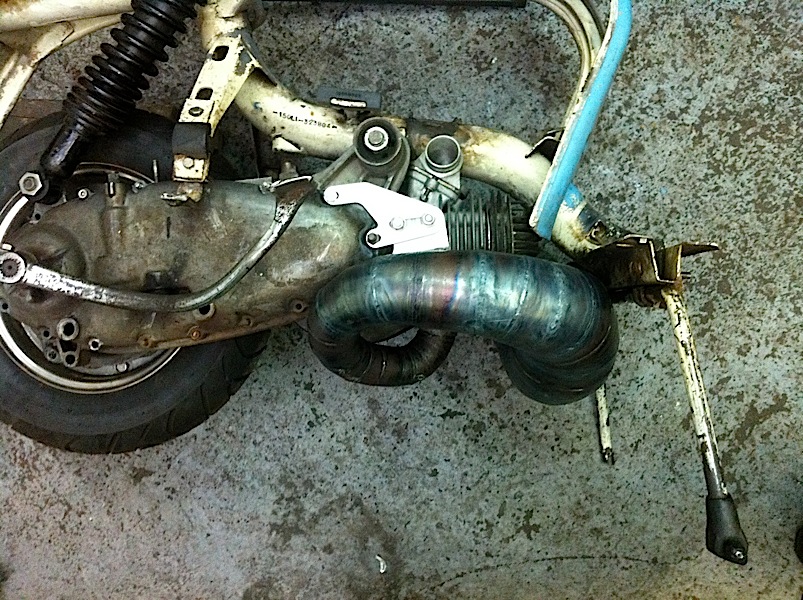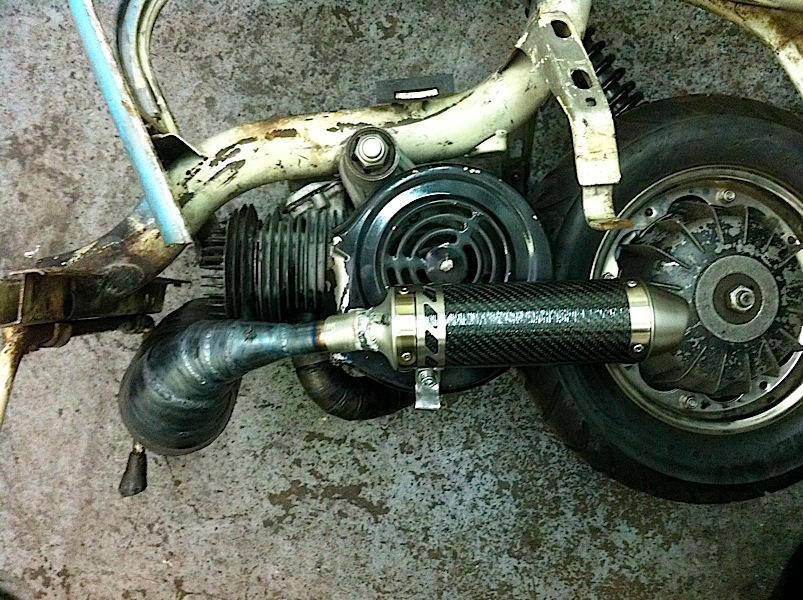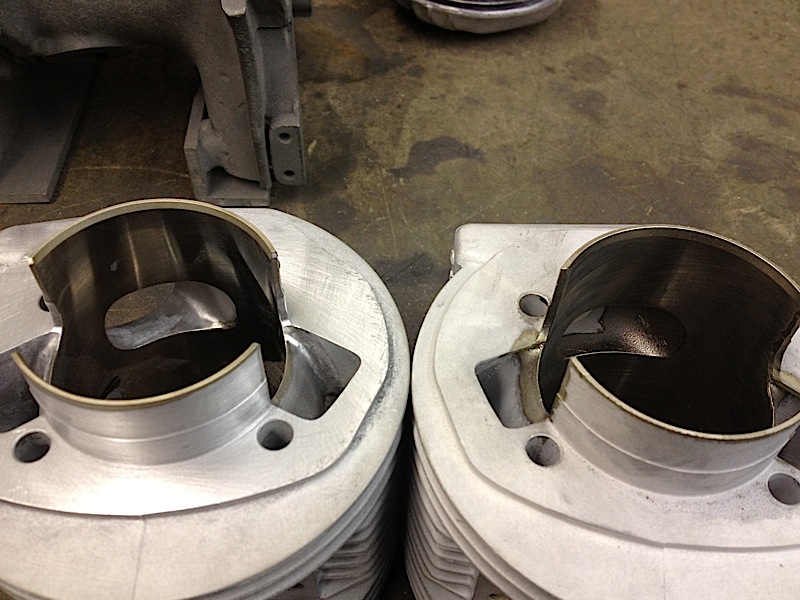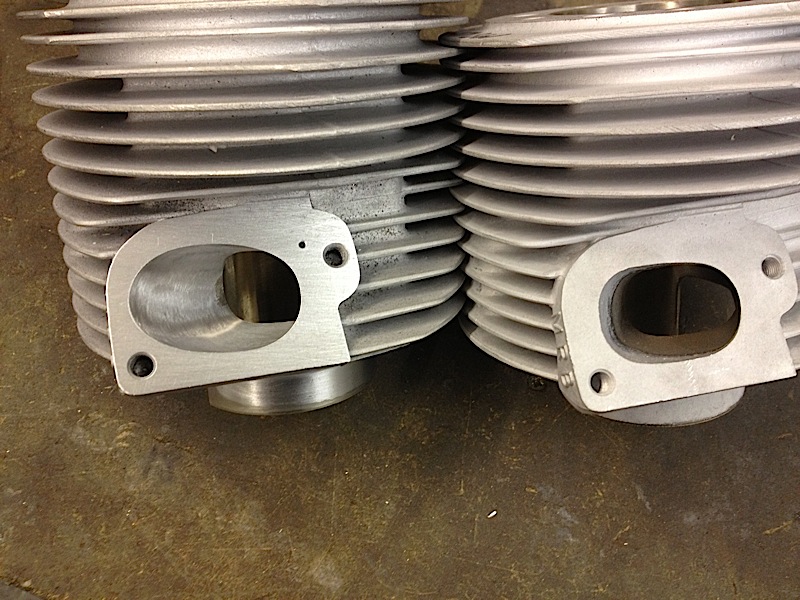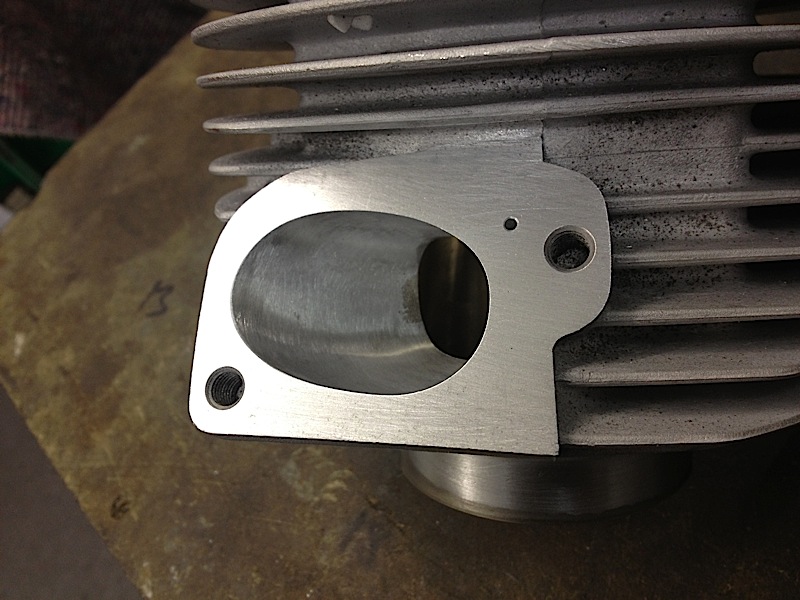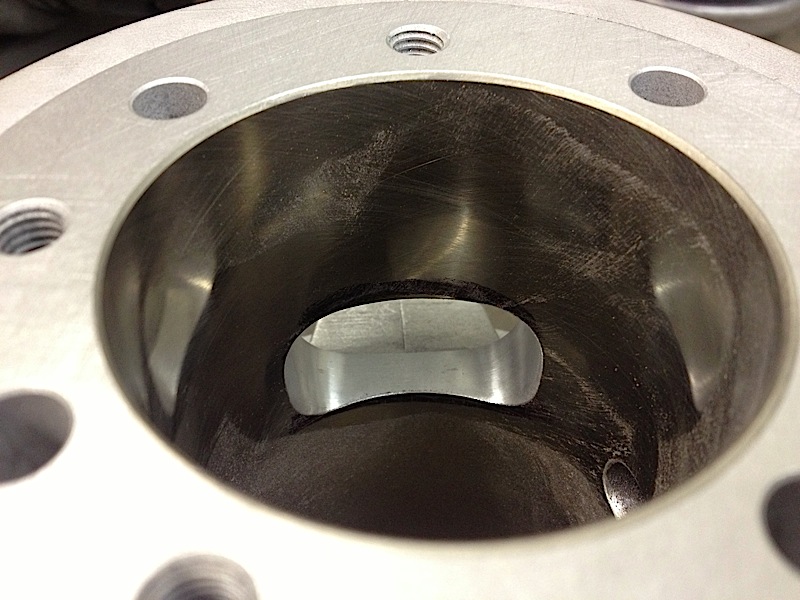RT CYLINDERS A TUNERS WET DREAM!
Well not quiet but if we all had them in the 80’s and 90’s when we were all mass tuning we would have saved hundreds of hours of tuning time and saved time in setting them up as they are so easy to do!
Here we have one of our old French customers who returns every now and again. Gilles put me up and entertained me for a night on the way to the Euro in Spain and he’s stayed at our farm a few times.
I’ve featured him with an old UK group 6 engine he bought which won the UK championship in the 90’s and I rebuilt the top end for him.
I’ve featured him with modifying a race pipe to stop it grinding and I’ve featured him in some racing shots as he’s so photogenic!
Because of these features our oil supplier sponsored him for when he’s racing. I believe, I’ve also tuned another road engine for him and he’s also had one of the first RT190 kits years ago.
Gilles and his race team did a 10 hour endurance race at Magny-Cours in France, with 27 teams from all over Europe. Leading up to the race I gave Gilles some Tech-Tips on how I thought an engine should be made for a long distance race. In the end his 4 man team over ruled me and started with a Mugello 200 which only last some time before blowing up (don’t shoot the messenger) so the team swapped to Gilles road going RT190 engine that he commutes around Paris on. From memory it competed around 8 hours non stop without a problem and in the end with an engine swap came home 11th behind some very professional race teams with full tuned small and large framed Vespas.
This time Gilles has ordered another RT kit for the main engine as all the team were so impressed with this little touring engine!
This motor is using a 60mm crank to lift cc to 200cc, I’ve tweaked the transfers and exhaust port to suit the crank. The Inlet manifold is bolted and matched through into the standard inlet port and the manifold has a little MB mod usually saved for slotted inlet manifolds that never hold their positioning every time the inlet is undone, check out the dowel. This year they’re using a 28mm Dellorto aiming at good fuel economy, part of the advice I gave and last year and part of the reason they did so well in catching up from the blown motor……. the further you go on a tank of fuel without stopping the better, a bit like doing the coast to coast race. For every stop it’s got to be 5 minutes – that’s some distance when you’re flat out and some catching up!
So back to the title!
With all the tuning and matching and head compression checks this took around 2 hours. One big advantages of the RT kit, is I designed the transfer feeds to old type stage 6 and the simple idea I built into the design was anyone with a Dremil or drill can easily tune the standard feeds to a full race tune if your casing is already done…… simple and easy look at the photo of the standard RT vs a tuned RT. Bare in mind a full race tune to old Skool iron stage 5 or 6 could have taken 10 hours!
Oh I wish I had my RT kits when I was grinding out all those 100’s of cast iron cylinders! And then there’s all the other advantages which the RT kit offers!
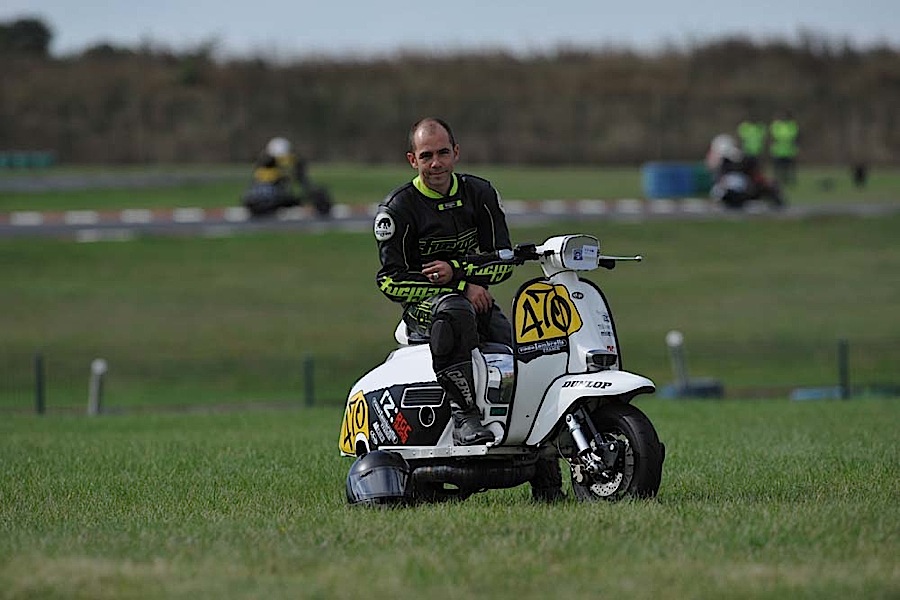
Gilles Fravel on one of his race bikes
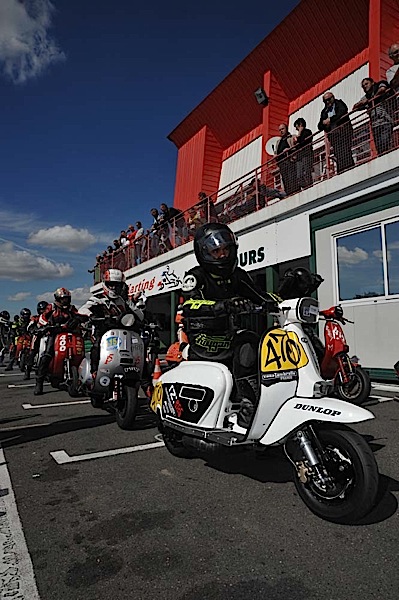
Gilles waiting to race
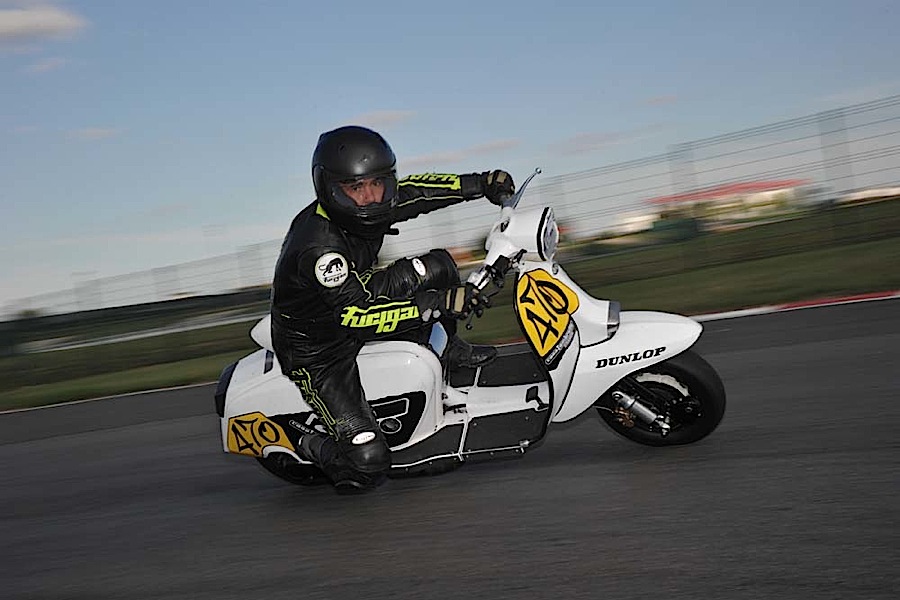
Such a poser
This was one of his race exhausts I had to modify to get better ground clearance
This took ages to modify, it would have been quicker to make a newer one
Set up on half a frame as a jig
Carbon silencer on the other side
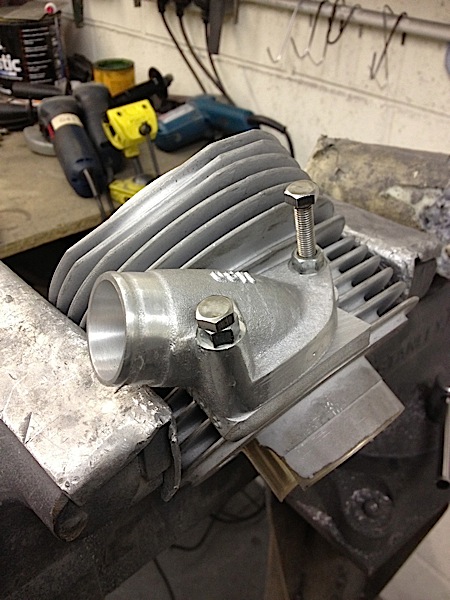
Inlet manifold bolted and flowed
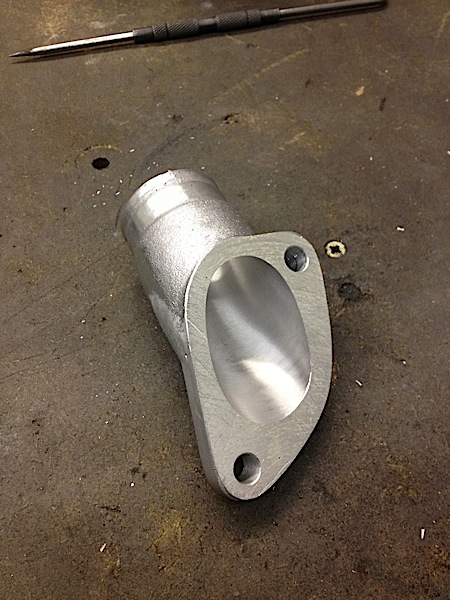
Clean flowing
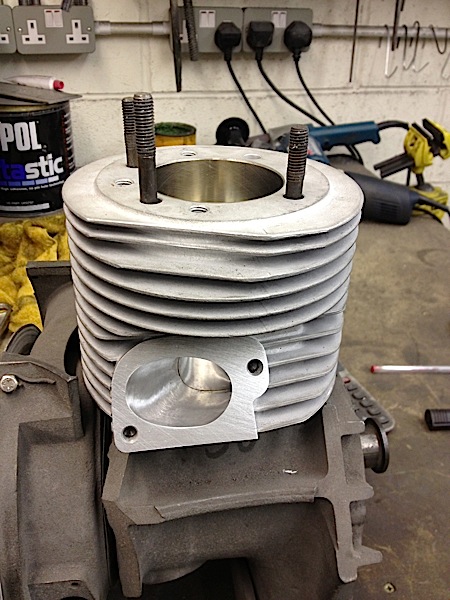
Ported inlet port

Set up on one of our timing jigs
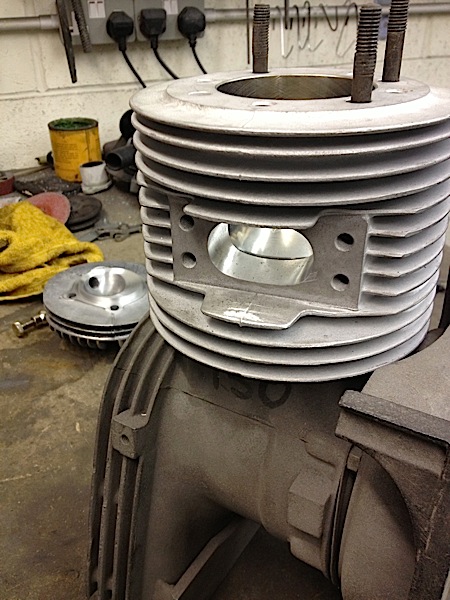
Exhaust flowed and tuned

Tuned RT transfer feeds on the left and standard RT on the right
Flowed inlet port on the left and standard RT on the right
Flowed on the left, standard on the right
Note the little hole to pin the inlet manifold in perfect position
Oval port for long distance touring

Transfers marked out and tuned to suit the 60mm crank
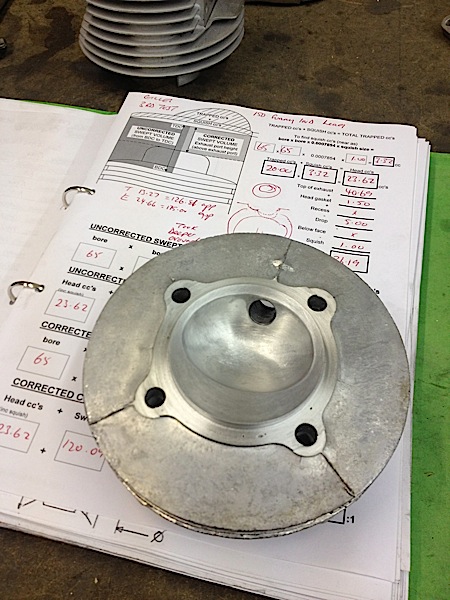
SIL head modified, note the compression sheet all filled out
Mark Broadhust. Any questions please email Mark on mark@mbscooters.co.uk






